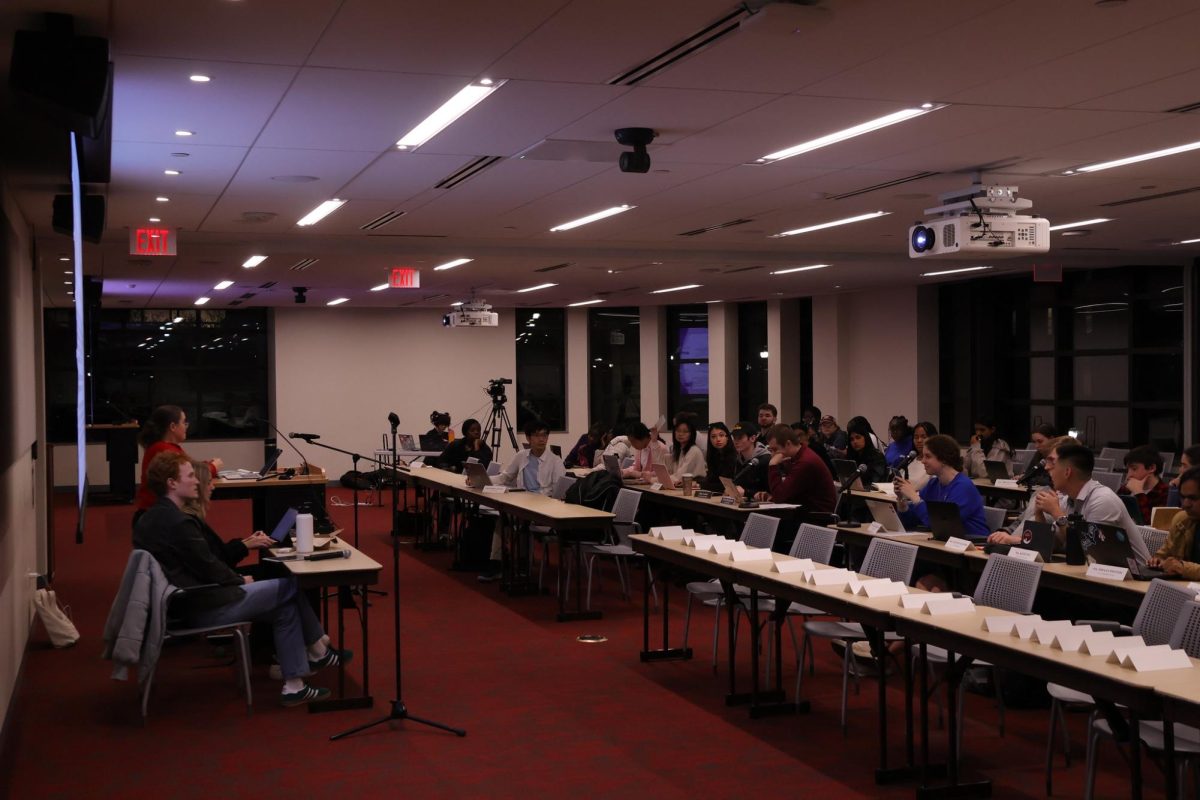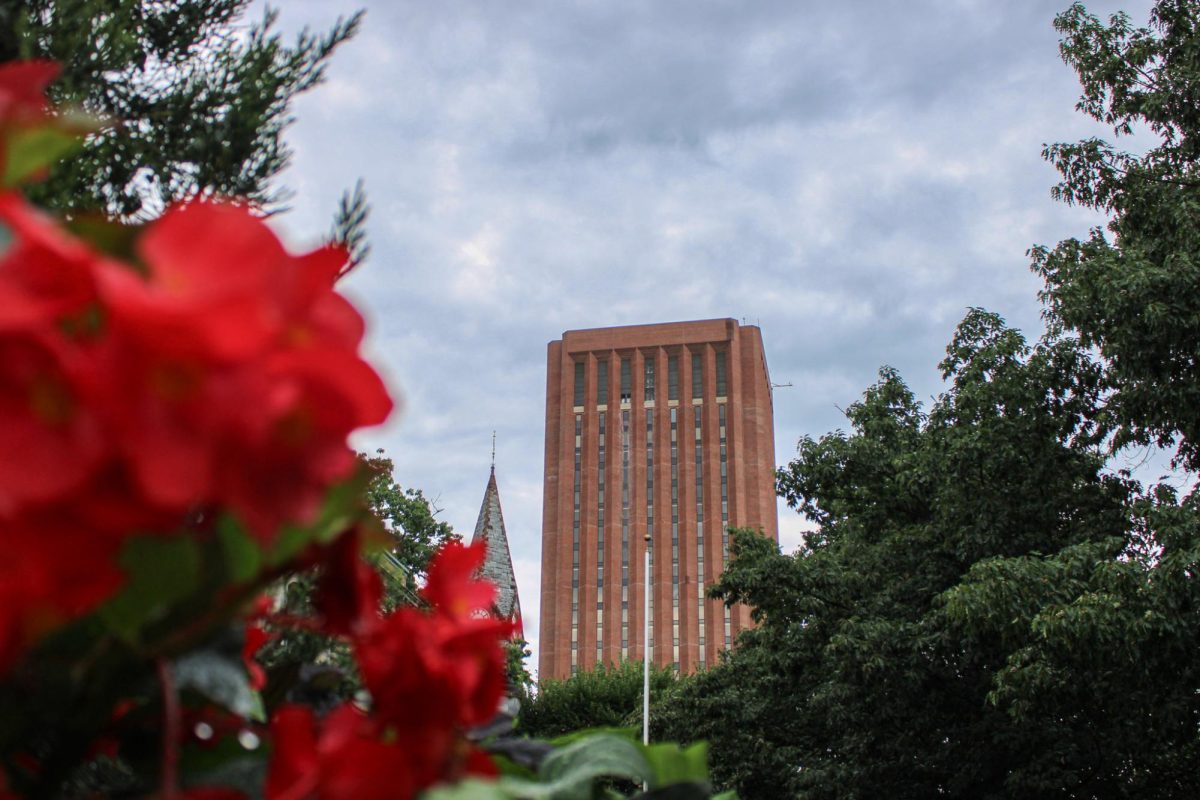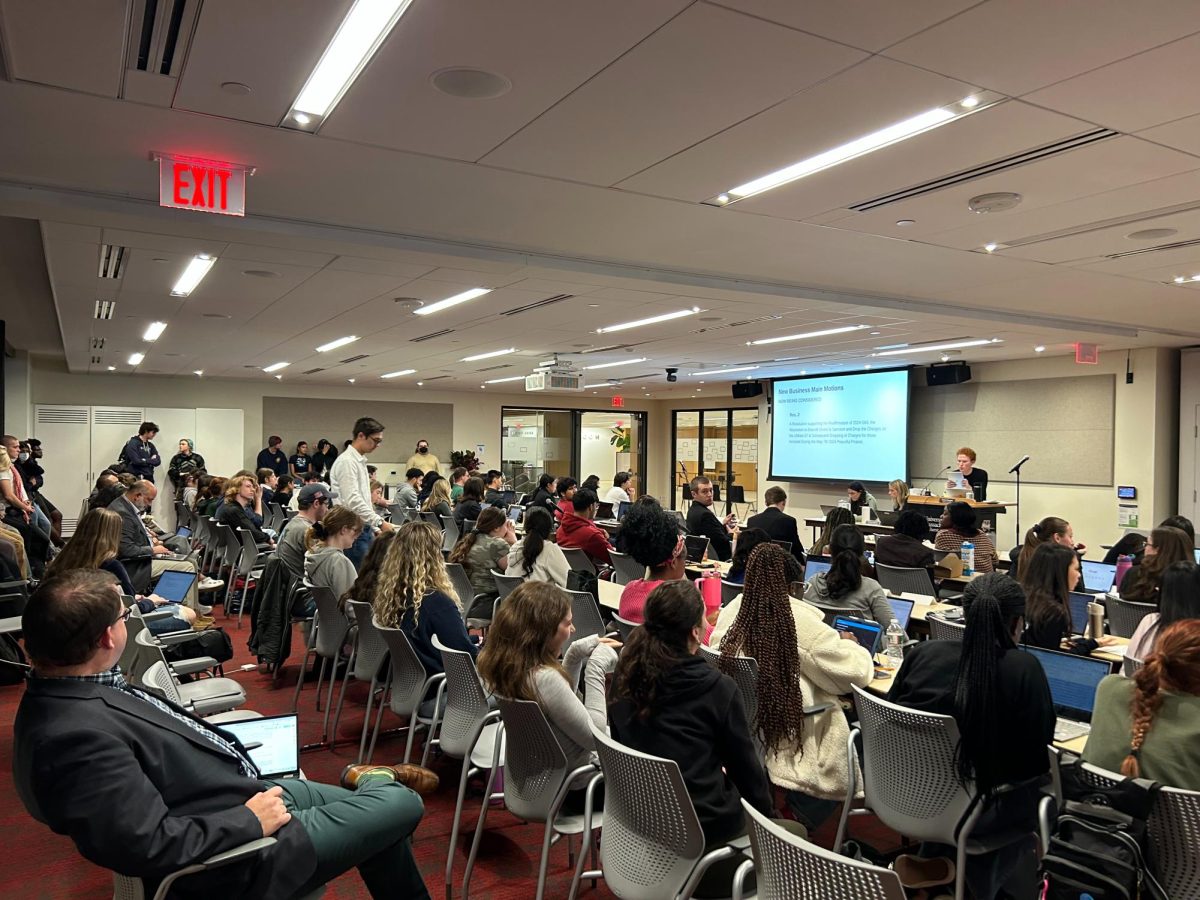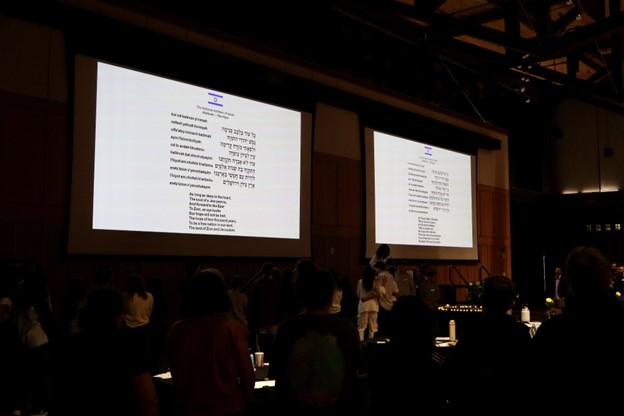
In recent years, the “Good Samaritan Protocol” or policy, has been known to students as a practice of the Dean of Students’ Office in which students finding friends in physical danger after alcohol or drug consumption could seek emergency medical attention without fear of post-event judicial sanctions for both themselves, regardless of their own drug consumption during the incident, and the student in need of treatment.
Over the past summer, the Dean of Students’ Office altered the content of this policy, removing the promise of judicial immunity for the students’ actions if a friend or “Good Samaritan” was to call for medical assistance.
Several UMass students expressed outrage at the policy’s textual changes. Many students, particularly members of the SGA believed the changes meant students lost their protection from the Code of Student Conduct from being judicially sanctioned.
“Personally, I am slightly offended the student body was not made aware of something that affects so many students,” said SGA Associate Speaker Tina Kennedy prior to Kim’s explanation.
In the past week, both Kim and the Dean of Students Jo-Anne Vanin attempted to assuage students’ concerns by stating that the policy changes were to create a title reflecting the policy’s “message of community and student safety first.” When the policy was changed its title became “Commitment to a Caring Community.”
Kim said at the SGA meeting “the only change to the policy was its name.”
Vanin recently sent out an e-mail to the student body that stated that the policy had again changed to now include that “An individual who requires medical attention due to excessive alcohol or drug intoxication will be referred to BASICS. Neither the reporting party nor the individual needing medical attention will be charged under the Code of Student Conduct.” The title was also changed back to its original ‘Good Samaritan Protocol.’
“The rewording of the policy was intended to make it more specific to help the students identify what specifically were the kinds of symptoms to look for,” said Vanin. “I worked on [the changes] with some folks from BASICS (Brief Alcohol Screening and Intervention for College Students) because we wanted to have a consistent message.”
The policy’s original changes included a list of symptoms displayed by sufferers of alcohol or drug poisoning. Students reacted to the changes focusing on the policy’ omission of what judicial procedures would follow after the incident, other than the policy’s assurance that ‘[the] individual who requires medical attention due to excessive alcohol or drug intoxication will be referred to BASICS.”
“It was mainly changed to go for greater clarity and to emphasize people getting help for each other,” Vanin said of the title change.
“That was not successful, obviously,” added Vanin of her attempt to make protocol’s message clearer for the student body by creating the policy’s name change and altering its content.
“When I understood there was a lot of anxiety that the message did not explicitly say that folks won’t get in trouble, that’s when I went back to the old name and put that neither the reporting party nor student that needs medical help will be charged,” said Vanin.
Other students, a few of whom are resident assistants and peer mentors, also claimed they had been told by Resident Directors and Assistant Resident Directors that judicial sanction immunity was removed with the intent to enable the Dean of Students to sanction students because of “the abuse of the policy by repeat offenders.”
“I’m an RA,” said Jarred Rose, directing a question to Kim at the SGA meeting. “My RD [resident director] told us that the student that gets hospitalized can have a judicial sanction because the policy [to grant students immunity under the Good Samaritan policy] did not exist any longer.”
After Rose’s statement several UMass residential life resident assistants in attendance spoke up in agreement to being told a similar situation by their Residence Life employers.
Kim responded stating that “clearly there are a lot of misunderstandings.”
Kim said at the meeting that a campus-wide announcement would be made, and Vanin’s e-mail made good on Kim’s statement.
“It’s a rumor,” said Vanin about the policy being altered because of students not being sanctioned on multiple occasions because of the protocol’s protections. “I have not had that reported to me. I think with any policy there is a chance that some people may not be responsible with how they follow it, but I think a higher concern for me is to make sure a student receives the help they need. I suppose that’s an unfortunate consequence, but I’m focused on the health and safety of students.”
“I do find it strange that there was so much initial confusion about the whole situation,” said Rose. “I would think that Reslife, the [Resident Directors] mainly, wouldn’t tell the RAs unless they were certain that something had been changed the way they said.”
“The Vice Chancellor’s explanation of the changes to the ‘Good Samaritan Policy’ certainly left something to be desired,” said SGA senator Josh Davidson. “Prior to Wednesday’s meeting, SGA leaders had been told the policy had been changed because of a concern it was being abused by students who needed it multiple times. Then on Wednesday, it was a “miscommunication” and an accidentally omitted line in the new policy.”
“I don’t buy the second explanation for a second,” continued Davidson. “First of all, it took the Dean and the Vice Chancellor a month and a half to realize this omission existed? Even after the first explanation was told to both student leaders and RAs? No, this was an intentional change to the policy by the Dean’s office. Secondly, I find it very confusing that the Dean’s office was seeking to merely rename the “Good Samaritan Policy” and yet, forgot to add the line which actually spells out what that policy is.”
“What did honestly go through my mind when I was listening to [Kim] was that it seemed like [the Vice Chancellor and Dean of Students’ Office] realized their mistake and were making the necessary changes before the press got a hold of it,” said Rose.
“My take on last Wednesday is that the Vice Chancellor was covering for a subordinate, most likely Dean Vanin. I think this was fairly obvious to everyone at the meeting, considering how disjointed and incoherent the Vice Chancellor’s explanation was,” said Davidson.
SGA senator Andrew Prowten said he was not surprised by the alleged confusion surrounding the policy between residence life directors and the dean of students’ office. “UMass’ biggest problem is communication,” he said.
“I think from the moment Kim heard about the new policy she showed great concern. She initially told me she would study it this semester before they decided to re-implement it,” said Prowten. “This was all politics; Kim didn’t want to undermine the Dean, but then she realized [the SGA] wouldn’t shut up.”
“I think Kim’s explanation was rather thin,” continued Prowten. She seemed sort of desperate for us to believe her. I’m not sure if the Dean of Students will be doing a study to see if the protocol is necessary since the policy is back in place. As far as our questions go, she answered them all, but I feel as though there is a lot more to the story that Kim feels we don’t need to know. Personally, I don’t appreciate being left out, but I feel that we were all successful in pushing them to put the policy back in place.” Prowten had said prior to the SGA meeting that it was his understanding that a study would be conducted since the policy’s alteration to see if it was necessary.
“High-risk drinking is still challenge on our campus,” said Vanin during a phone interview a few days after the campus message was sent. “We would be foolish to not emphasize our need to be responsible to each other, and in those instances put student safety above all.”
Alyssa Creamer can be reached at [email protected].






